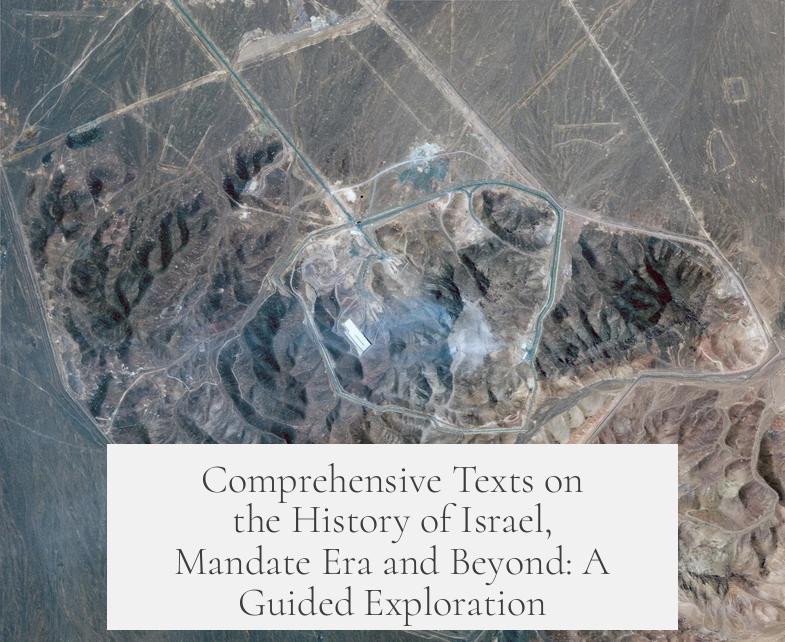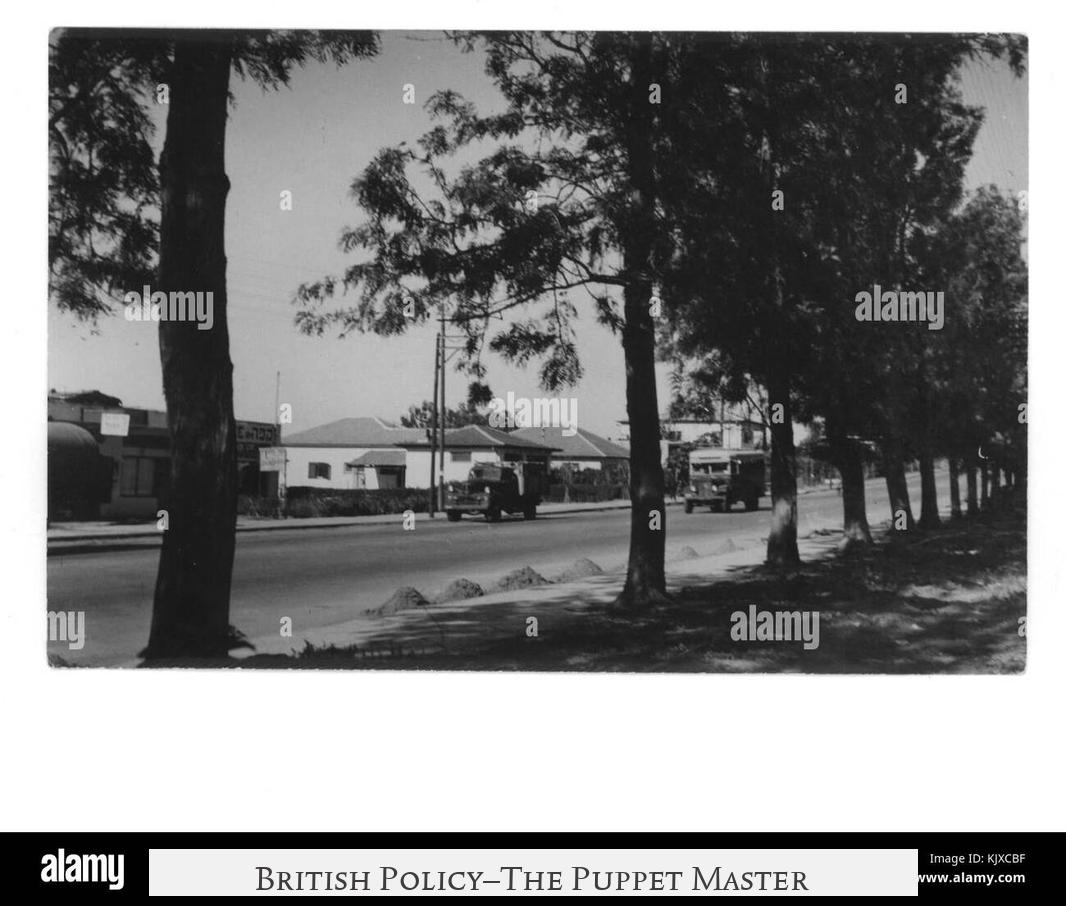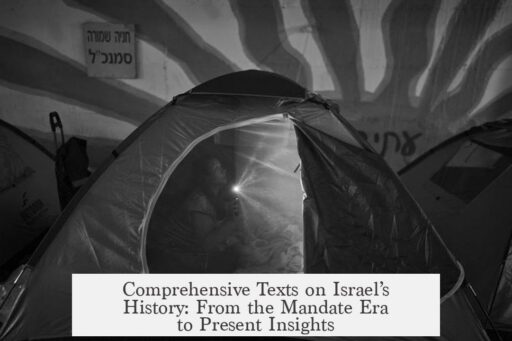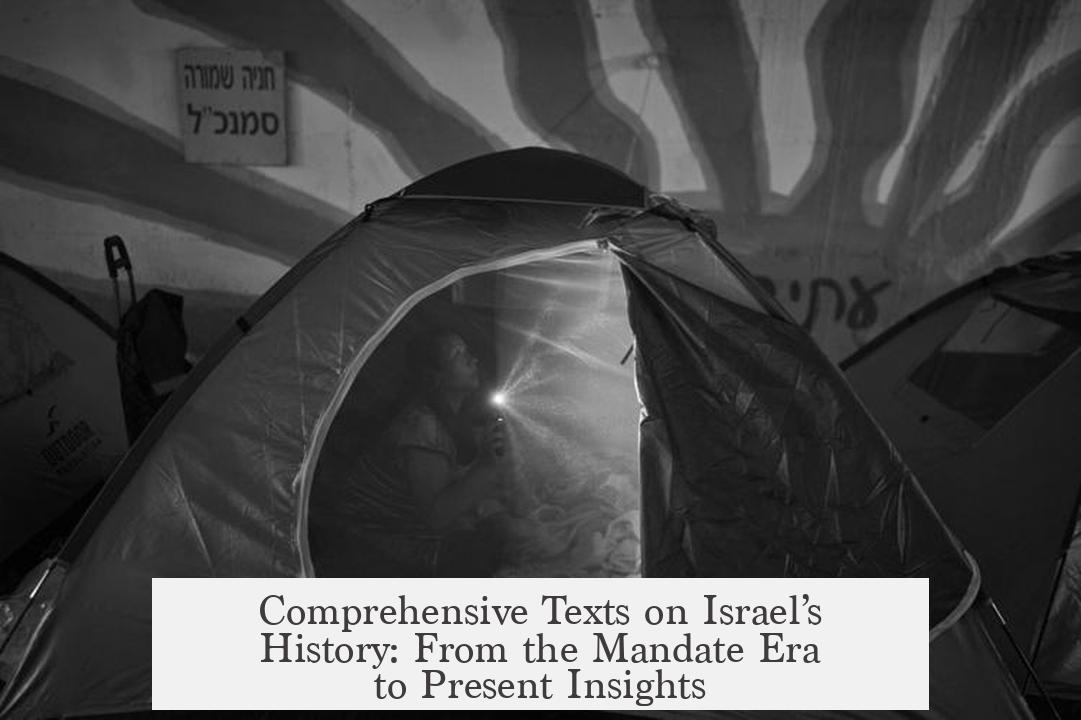Comprehensive texts on the history of Israel, Mandate era and beyond provide detailed insights into the complex historical, political, and social dynamics shaping the region. These works cover multiple perspectives including British policy, Palestinian narratives, Zionist ideology, and key conflicts from the early 20th century to the present.
One essential starting point is Enemies and Neighbors: Arabs and Jews in Palestine and Israel, 1917-2017 by Ian Black. This book offers a thorough overview of the interplay between Arabs and Jews in Palestine and Israel over a century. Its broad timeline helps readers grasp the evolving relationships and conflicts.
Jonathan Schneer’s The Balfour Declaration (2011) is crucial for understanding the origins of the Israeli state. Schneer examines the 1917 declaration from Zionist, Palestinian, and British perspectives. By exploring this critical document, readers see how early 20th-century decisions created enduring tensions and set the stage for future disputes.
For wider regional context, A History of the Middle East by Peter Mansfield and Nick Pelham offers a political survey of the modern Middle East. The most recent 2019 edition illuminates how Middle Eastern politics intertwine with the history of Israel and the Mandate era. It allows selective reading for those interested in broader regional links.
Additional works of note include those by Elie Kedourie and David Fromkin. Fromkin’s narratives focus on the emergence of the modern Middle East post-World War I, highlighting the British Mandate period and its consequences. These texts shed light on diplomatic and imperial decision-making relevant to Palestine and surrounding territories.
Michael Oren’s Six Days of War uses oral history methodology, collecting interviews with vital figures involved in the 1967 conflict. This approach provides a direct glimpse into the perspectives of military and political leaders during a pivotal moment in Israeli history.
Rashid Khalidi’s The Hundred Years’ War on Palestine presents a detailed Palestinian perspective on the ongoing conflict. Khalidi, a respected historian, traces Palestinian dispossession and resistance, offering a narrative often underrepresented in mainstream Western accounts.
Alan Dershowitz’s books, The Case for Israel and The Case for Peace, offer comprehensive histories supporting Israel’s legitimacy and proposing paths toward resolution. Though controversial, these texts present influential pro-Israel arguments within the broader discourse.
For authentic Palestinian voices, Once Upon a Country by Sari Nusseibah deserves attention. It combines personal memoir with critical reflections on Palestinian violence. Edward Said’s The Question of Palestine is another crucial text, framing Palestinian identity and nationalism.
Texts like Ilan Pappé’s The Ethnic Cleansing of Palestine, Raja Shehadeh’s Strangers in the House, and Nakba: Palestine, 1948, and the Claims of Memory provide more critical and sometimes contentious accounts of the Palestinian experience, emphasizing displacement and memory.
Musa Al-Alami’s The Lesson of Palestine (1949) offers a near-contemporary Palestinian viewpoint from the immediate aftermath of Israel’s formation, valuable for understanding early Palestinian narratives.
Regarding British policy during the Mandate era, specialized academic works and dissertations analyze British strategic goals in the Arabian Peninsula, Mesopotamia, and Palestine. These resources elucidate how imperial ambitions and mandates influenced regional outcomes.
For those seeking Arabic-language analytical frameworks, Abdel Wahab El-Messiri’s extensive Encyclopedia of Jews, Judaism and Zionism provides methodological critiques of Zionism and Middle East history. However, these volumes remain largely inaccessible due to limited distribution, influenced by political factors within the Arab world.
Beyond books, alternative media like the Martyrmade podcast series deep dives into Israel/Palestine history with scholarly references. Also useful are curated academic resources, including teaching materials and bibliographies available online, which facilitate a structured approach to learning about the conflict.
| Category | Key Works | Focus |
|---|---|---|
| General Histories | Enemies and Neighbors (Black), A History of the Middle East (Mansfield & Pelham) | Political, social history over 100+ years, regional context |
| Mandate Era & Origins | The Balfour Declaration (Schneer), works by Fromkin & Kedourie | British policy, origins of Israel, post-WWI diplomacy |
| Israeli Perspectives | Six Days of War (Oren), Dershowitz’s books | Military conflict, defense of Israel’s policies |
| Palestinian Perspectives | Once Upon a Country (Nusseibah), The Question of Palestine (Said), Ethnic Cleansing of Palestine (Pappé) | Palestinian history, identity, displacement, critique |
| Specialized Resources | Encyclopedia of Jews, Judaism and Zionism (El-Messiri) | Analytical approach to Zionism and conflict (Arabic) |
| Media & Online | Martyrmade podcast, academic resource collections | Accessible, multimedia historical explorations |
- The history of Israel and the Mandate era is best understood through multiple perspectives; no single narrative suffices.
- British policy shaped much of the early conflict, influencing Zionist goals and Arab resistance.
- Palestinian voices are critical to grasping the human impact of displacement and conflict.
- Oral histories and interdisciplinary works enrich understanding beyond official records.
- Accessible resources including podcasts and curated reading lists assist newcomers and scholars alike.
Comprehensive Texts on the History of Israel, Mandate Era and Beyond: A Guided Exploration

The history of Israel—from its roots in the Mandate era to its modern-day complexities—can be bewildering. But fear not! There are comprehensive texts that break down this narrative with clarity, insight, and sometimes a splash of dry humor to keep you engaged. Let’s dive into some of the most authoritative and readable works on the topic and why they matter.
When starting to unravel Israel’s story, you need books that cover many perspectives. The Mandate era set the stage for everything that followed. Understanding British policy, Zionist ambitions, and Arab reactions during this period is key.
Why the Mandate Era? And What Books Nail It?
The British Mandate over Palestine from 1920 to 1948 shaped borders, communities, and tensions that endure. If you’ve ever wondered how a promise written in 1917 still shakes the world today, The Balfour Declaration (2011) by Jonathan Schneer is your go-to. Schneer offers a readable and nuanced view, juggling Zionist hopes, British diplomacy, and Palestinian resistance. It’s like a diplomatic tug of war set in sepia tones, but told with clarity.
For a broader regional view, try A History of the Middle East by Peter Mansfield and Nick Pelham, with its latest edition from 2019. It calls the Middle East what it is—a complex kaleidoscope of ethnicities, religions, and politics. You can dip in and out without getting lost in a sea of footnotes. It’s especially handy for seeing how Palestine’s story fits into larger Middle Eastern struggles.
If you’re hungry for some narrative flair on the Mandate and the post-World War I reshaping, David Fromkin’s works vividly capture the chaotic birth of Middle Eastern nation-states. Pair that with Elie Kedourie for insights into ideological and political currents, and your bookshelf starts to form a solid foundation.
Digging into Israel’s Post-Mandate History
Want a take that combines hard facts with human voices? Michael Oren’s Six Days of War is a unique treasure. Oren collects firsthand accounts from the 1967 war, distilling strategy, fear, and heroism. It’s like frontline tweets from a time before Twitter. It humanizes history without glossing over the geopolitics.
For a perspective that challenges mainstream narratives, Rashid Khalidi’s The Hundred Years’ War on Palestine offers a critical analysis centered on Palestinian experience and resilience—perfect for those who want their history with a touch of urgency and contemporary relevance.
The Israeli-Palestinian Conflict Through Different Lenses
History isn’t just politics on paper; it’s deeply personal. To grasp the Palestinian perspective, Sari Nusseibah’s Once Upon a Country delivers an emotional, honest story. It’s also critical of violence from all sides—bringing balance and heart.
Edward Said’s The Question of Palestine and Ilan Pappé’s controversial The Ethnic Cleansing of Palestine dive deep into narratives that often remain sidelined in Western discourse. Raja Shehadeh’s Strangers in the House and collections like Nakba: Palestine, 1948, and the Claims of Memory emphasize memory and the ongoing struggle over land and identity.
For a primary historical voice, Musa Al-Alami’s 1949 text The Lesson of Palestine captures contemporary Palestinian reactions to events that many readers only learn about in hindsight. It’s like having a time capsule of feelings and politics just after partition.
British Policy—The Puppet Master?

British involvement shaped much of the Mandate’s legacy. For those who want to dig deeply into British motives and strategies in the Arabian Peninsula and Mesopotamia during the 1920s, academic theses and dissertations offer granular insight. For instance, some scholars have recently produced detailed master’s dissertations specifically on British policy-making in the region, which can add texture to understanding why certain borders or decisions came about. Want deeper research? Ask a history nerd for academic papers; they love sharing them.
Unearthing Hidden Gems: Arabic Perspectives and Censorship
Not all histories are easily accessible. Abdel Wahab El-Messiri’s Encyclopedia of Jews, Judaism and Zionism is an eight-volume Arabic series packed with analysis on Zionism’s ideology and Middle East crises. But here’s the kicker—copies in English are scarce because an Arabian country supporting Israel bought up the collections to keep them off the market. Talk about historical gatekeeping!
Podcasts and Modern Resources: History Beyond Books
If books aren’t your thing, try the Martyrmade Podcast. It’s a deep dive into Israel-Palestine history with plenty of references. Full disclosure: it’s long. But well worth your time if you want a modern take sprinkled with fresh sources and interviews.
Plus, several Israel-Palestine courses offer extensive reading lists and documents online for free, like [this Google Doc](https://docs.google.com/document/d/1FtNFkK1lOovup2ydRoaUi_hBZ0fs5fLXxAcQLNwWpYQ/edit?usp=drivesdk), making it easier than ever to explore different narratives.
Top Picks for Different Readers
- Looking for readability and context? Jonathan Schneer’s The Balfour Declaration and Peter Mansfield’s A History of the Middle East fit the bill.
- Craving firsthand voices? Michael Oren’s Six Days of War and personal memoirs like Sari Nusseibah’s Once Upon a Country.
- Need critical and alternative narratives? Rashid Khalidi, Edward Said, and Ilan Pappé bring those to the forefront.
- Digging into British policy? Look for dissertations and historical analyses from scholars on the Mandate and its aftermath.
- Seeking hidden or censored texts? Abdel Wahab El-Messiri’s Arabic encyclopedia, though tough to find in English, is a goldmine.
Wrapping It Up: Why Read Broadly about Israel’s History?
The history of Israel and Palestine isn’t just a series of dates and treaties. It’s a tapestry woven with human stories, political strategies, conflicting memories, and ongoing struggles. By reading from multiple sources, you get a panorama, not just a snapshot.
What surprises you most when you read these varied perspectives? Is it the complexity? The resilience? Or the sheer depth of unresolved questions? Whatever it is, these comprehensive texts help you navigate a topic that’s never just black and white.
So grab a book (or an earbud) and start exploring. History loves company—especially curious minds.




